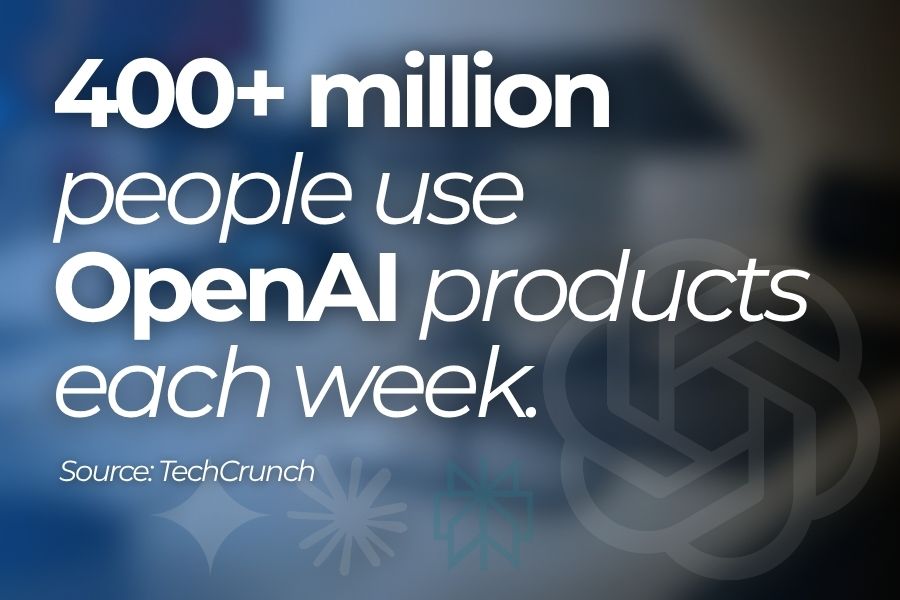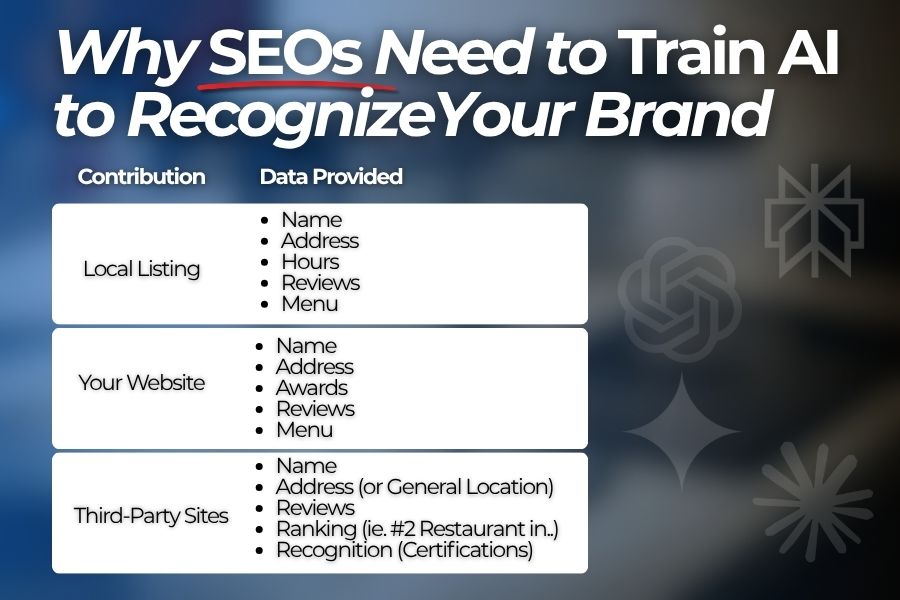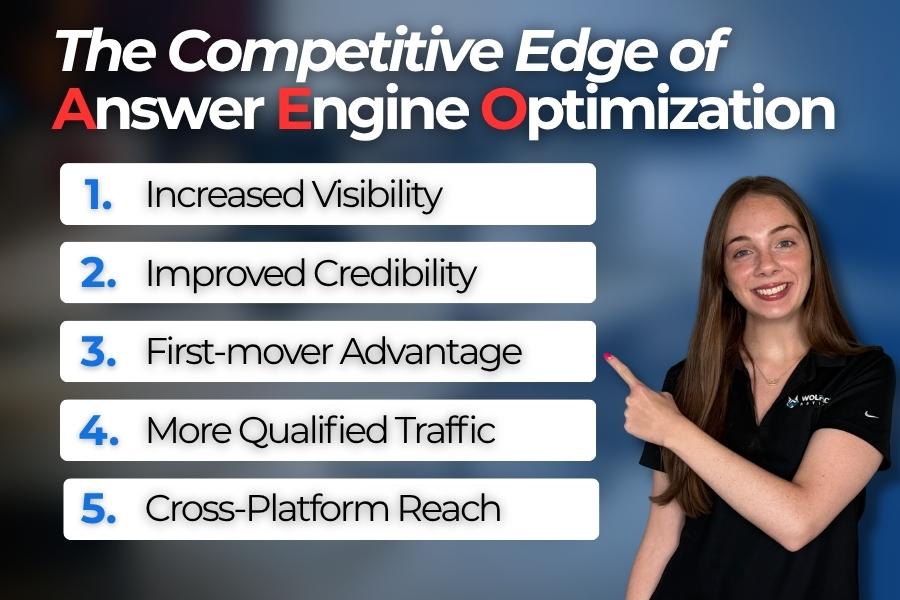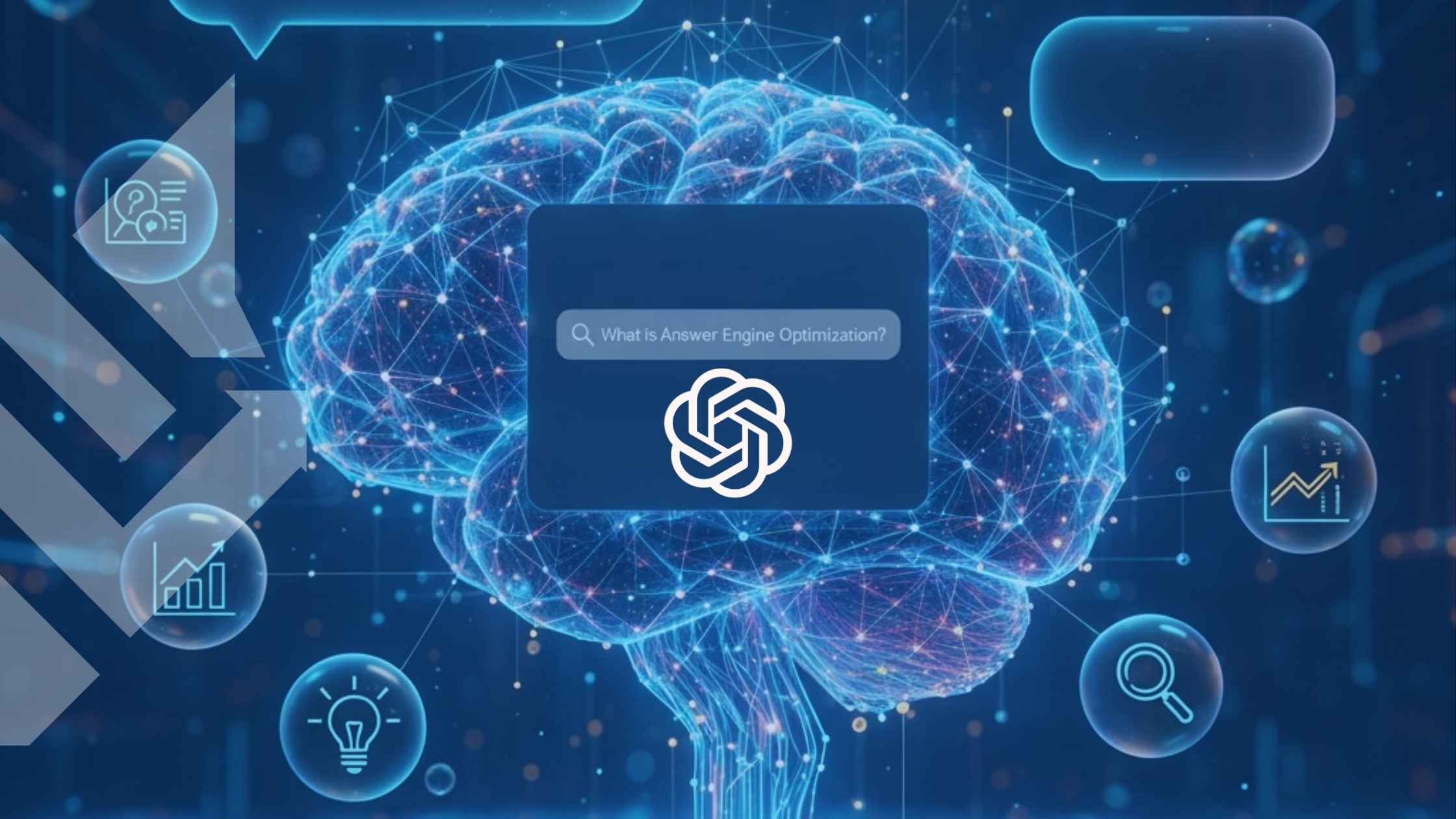Last updated on December 26th, 2025 at 11:22 am
AEO, short for AI Engine Optimization, is the next evolution of search strategy. It’s the process of optimizing your content not just for search engines, but for AI engines like Google SGE, Gemini, ChatGPT, and Bing Copilot that now generate direct answers, summaries, and recommendations.
In 2026, visibility in these AI-powered responses determines brand authority. Traditional SEO focuses on ranking pages; AEO ensures your content is understood, selected, and surfaced by AI models.
This blog breaks down what AEO is, why it matters, and how your business can prepare for the AI-first era of search.

Contents
What Is AEO? Understanding AI Engine Optimization
AI Engine Optimization (AEO) means structuring and writing content in ways that help AI systems interpret meaning, context, and authority, not just keywords.
While SEO helps your website rank in Google’s traditional index, AEO focuses on training AI engines to “trust” your content as a reliable source. This involves optimizing for:
- Entities (topics and relationships between them)
- Structured data (Schema, JSON-LD)
- Conversational intent (answer-first writing)
- EEAT signals (Experience, Expertise, Authoritativeness, Trustworthiness)
| SEO Focus | AEO Focus |
| Keywords & backlinks | Entities & context |
| Page ranking | AI summarization & retrieval |
| Metadata & tags | Structured data & knowledge graph |
| Crawlability | Interpretability |
In short: SEO gets you found. AEO gets you understood and recommended by AI.
How AEO Works in AI Search (Google SGE, Gemini, ChatGPT, and Beyond)
AI search engines no longer simply display web pages; they generate answers by pulling relevant information from multiple sources, then summarizing it for the user.
For instance:
- Google SGE uses generative AI to synthesize web data into a single summarized answer.
- Gemini and ChatGPT analyze site context and entities to determine authoritative responses.
- Bing Copilot retrieves entity-rich, structured data to power conversational replies.
To surface in these environments, your content must:
- Answer questions directly (in short, structured passages).
- Use Schema markup so AI can read context.
- Demonstrate entity consistency (topics, authorship, credibility).
- Provide trustworthy signals (clear sources, data, expertise).
Visual Tip: Include a flowchart showing “How AI Engines Understand and Retrieve Content.”
Why AEO Matters for SEO (And Why Businesses Can’t Ignore It)
AI engines are the new search gatekeepers. Whether someone uses ChatGPT, Google SGE, or another AI-powered assistant, they rely on synthesized answers, not long result lists.
Why this shift matters:
- AI answers replace clicks. Businesses appearing within AI-generated responses dominate visibility.
- Trust equals traffic. Users perceive AI-surfaced brands as more credible.
- Context drives discovery. AI favors content with structured meaning, not keyword repetition.
Example:
WolfPack recently helped a regional service brand implement AEO by restructuring content for entities and answer-first passages. Within 90 days, the brand’s content appeared in over 60% of AI summary results for its target queries, a 2.3x visibility increase without ranking higher in traditional SERPs.
Key takeaway: AEO ensures your brand isn’t left out of AI’s new “top results.”
AEO vs SEO: What’s the Difference and Why It Matters
Many marketers wonder: “Is AEO replacing SEO?”
The answer is no, it’s expanding it.
| SEO Focus | AEO Focus |
|---|---|
| Keywords & Backlinks | Entities & Context |
| Page Ranking | AI Summarization & Retrieval |
| Metadata & Tags | Structured Data & Knowledge Graphs |
| Crawlability | Interpretability & Meaning |
In other words, SEO is for search engine crawlers. AEO is for AI interpreters.
When you align both, your website becomes discoverable, understandable, and retrievable across all AI-powered ecosystems.
Businesses with a strong SEO foundation already have a head start with AEO. Practices like structured content, schema markup, and EEAT optimization don’t just help traditional search rankings—they also help AI engines interpret and trust your information. In many ways, AEO builds upon the groundwork good SEO has already laid.
AEO Ranking Factors: What AI Engines Actually See
AI engines don’t “rank” in the traditional sense. They retrieve and synthesize based on understanding. Here’s what they look for:
Structured Data and Schema for AEO
Adding schema markup (FAQ, HowTo, Product, Organization) helps AI engines interpret your site’s meaning, not just content.
→ Example: Marking up FAQs allows ChatGPT or Gemini to directly quote your answers in AI responses.
Entities, Context, and EEAT in AI Engine Optimization
Entities are the “nouns” AI connects, people, places, brands, topics. Use consistent entity naming (e.g., WolfPack Advising → Digital Marketing Agency → SEO Experts).
EEAT signals then tell AI your content is reliable and human-authored.
Conversational Coverage and Passage Optimization
AI tools are built to understand how people naturally ask questions.
When creating your content, organize it around real queries your audience might type or speak, such as:
- “What does AEO mean?”
- “Why is it important for modern SEO?”
- “How does it change traditional optimization?”
- “What steps can I take to start applying it?”
Each passage should directly answer the query in the first 1–2 sentences.
How SEO and AEO Work Together
Search Engine Optimization (SEO) and Answer Engine Optimization (AEO) are not separate strategies. They are part of the same evolution.
Companies already investing in SEO have a clear head start. Strong SEO foundations like structured content, keyword strategy, and EEAT (Experience, Expertise, Authoritativeness, and Trustworthiness) directly support AEO success.
In simple terms, SEO builds the structure, while AEO enhances interpretation. When your pages are already optimized for search intent and clarity, adapting that content for AI-driven discovery becomes faster and more effective.
Businesses that align both strategies gain visibility not only in search results, but also in AI-generated answers, summaries, and voice responses.
How to Implement AEO for Better SEO Visibility
Follow this 5-step roadmap to start optimizing for AI engines:

Step 1: Audit Your Entity Coverage
Identify your core topics and entities. Use tools like Google’s NLP API or in-house analysis to see how AI perceives your brand context.
Step 2: Add and Test Structured Data
Implement schema across your site. Start with organization, article, and FAQ schema for every core page.
Step 3: Write Answer-First, Conversational Content
Each section should open with a clear answer (ideal for AI snippet extraction).
Example:
“AI Engine Optimization (AEO) means helping AI understand and recommend your content, not just rank it.”
Step 4: Optimize for AI Summaries and Chat Responses
Anticipate how AI might paraphrase or summarize your page. Use concise, data-backed sentences.
Step 5: Monitor Performance in AI Search Environments
Track impressions in Google SGE, Bing Copilot, or ChatGPT search integrations (via visibility tools like BrightEdge or Authoritas).
Common Myths About AI Engine Optimization
| Myth | Truth |
|---|---|
| “AEO replaces SEO.” | AEO enhances SEO, both work together. |
| “AEO is only for AI chatbots.” | AEO applies to all AI-driven discovery platforms. |
| “You need expensive software.” | Strategy and structure matter more than tools. |
| “AI can’t read my content.” | Proper schema and EEAT signals help AI engines interpret meaning. |
Related Questions Marketers Are Asking
1. What’s the difference between AEO and semantic SEO?
Semantic SEO focuses on helping search engines understand meaning through context and entities. AEO goes a step further, it optimizes content for AI engines that generate answers, not just rank pages. In short, semantic SEO feeds Google’s algorithms; AEO feeds AI-driven systems like Gemini and ChatGPT.
2. How does AEO impact local business visibility?
AEO helps local businesses appear in AI-powered map packs, summaries, and voice results by improving structured data, reviews, and entity consistency. When AI engines can clearly identify a business’s name, location, and expertise, they’re more likely to include it in conversational results and local recommendations.
3. Can small businesses benefit from AEO?
Absolutely. AEO levels the playing field. By creating clear, structured, and answer-oriented content, small businesses can earn visibility in AI results without massive ad budgets. AI engines prioritize clarity and authority, not company size.
4. Does AEO affect voice and multimodal search?
Yes. Voice and multimodal platforms (like Google Assistant or Gemini) depend heavily on AEO-optimized content: short, factual, and structured for conversational queries. The same principles that power AI summaries also power spoken and visual responses.
5. What are the best tools for AEO optimization?
The best AEO tools help identify entities, structure data, and test AI readability. Top picks include:
- Schema.org Markup Generator – for adding structured data
- Google NLP API – to analyze entity relationships
- SurferSEO or Clearscope – to improve contextual coverage
- ChatGPT or Gemini – to preview how AI engines interpret your content

Conclusion
By 2026, over 70% of online discovery is expected to come from AI-powered platforms like Google’s SGE, Gemini, ChatGPT, and voice assistants. Optimizing for how these systems understand and deliver information is now essential for brands that want to stay visible and trusted in the AI-driven search era.
WolfPack Advising helps businesses lead this transition with strategies built for both people and AI. Schedule your AI visibility audit today to ensure your brand stands out, earns trust, and stays discoverable wherever your audience searches next.





